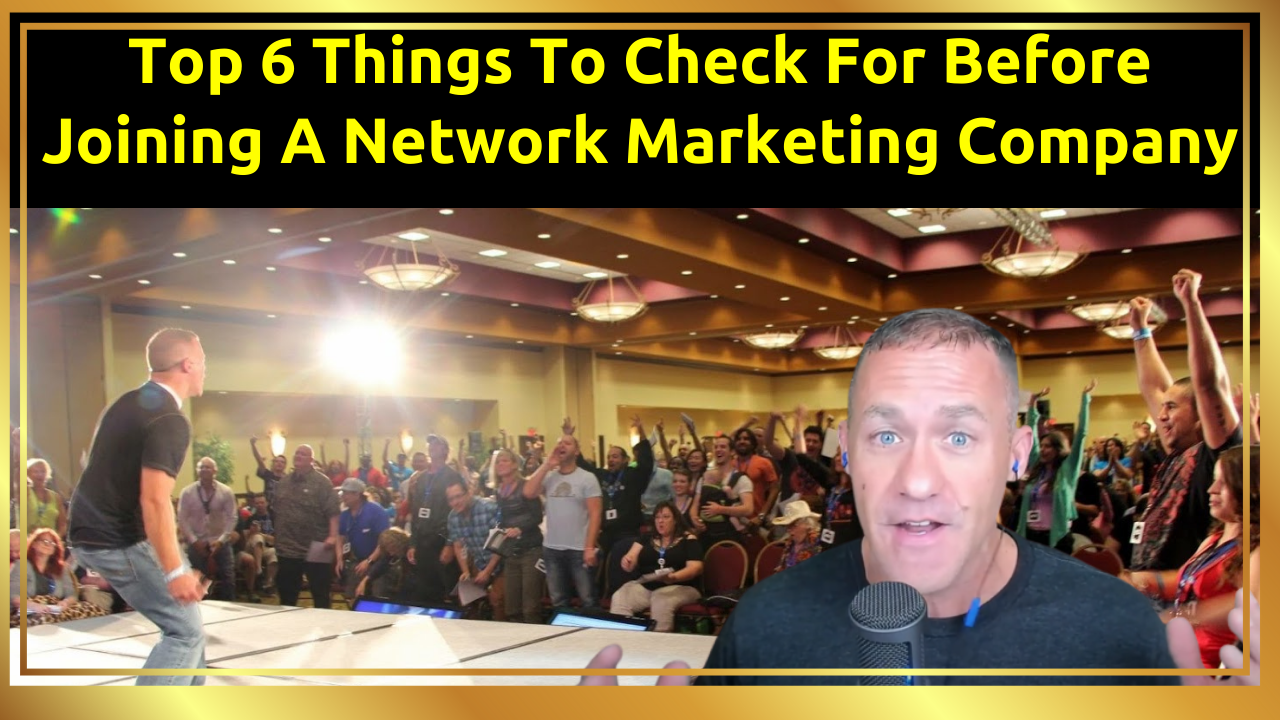I recently saw a post from an MLM guru talking about how a friend of his was getting sued by an MLM company because she had decided to leave.
This lady hadn’t recruited even one person from the company, and still, she was getting sued.
I’ve found myself saying more than once over the years, “I love the idea of network marketing, but hate how it often plays out in real life for people.”
In my mind, one of the best aspects of what network marketing is supposed to represent is freedom. Many of us are attracted to building a business from home because we don’t appreciate the controls placed upon us by the job world.
It’s super sad when companies in the network marketing space begin to behave like the companies and employers that we were wanting to get away from when we first became open to building a residual income from home.
A lot of heartache and frustration can be avoided if more people would read the distributor agreements and compensation plans.
After having been in direct sales for 19 years, here are my top recommendations for what to look for in a compensation plan and also potential red flags to watch out for in distributor agreements.
The number one question you need to ask yourself before joining any company is:
-> “Will this company be around far off into the future?”
If the answer to that question is “No” – nothing else matters.
Once you feel confident that the company will be around, here are the next few things to look for.
Noncompete clauses
Some companies make it illegal for you to be a distributor in any other network marketing company while you’re earning an income with them.
Some companies make it illegal for you to join another network marketing company, for a certain amount of time after you quit.
Some companies make it illegal for you to sell anything else while you are a distributor in said company. This could include affiliate products that you might like.
Ownership of customer data/downline:
Many companies view customer and downline data as proprietary and also want to prevent the use of these contact lists for competitive targeting. The intention to prevent cross-recruiting and malicious targeting of someone’s business seems completely reasonable and valid.
However, in my opinion, some companies take this too far, and make it so the personal contacts that you introduced to the company then become off-limits from anything you might do in the future. To me, this feels like crossing the line.
Marketing and advertising policies
Many companies have strict policies regarding what you can and can’t do on the Internet. Of course, some of these policies may be completely reasonable and designed to protect the brand long-term for all of the distributors.
However, I’ve seen some policies that seem to go way beyond this good intention and greatly inhibit the freedom of the marketer, and give the company yet another way to destroy or take away said marketer’s income.
My business partner had an entire business destroyed because his company decided one day that they didn’t like him and his team marketing on Craigslist.
You’ll have to decide how much flexibility and control you’re okay with in this area, but you DEFINITELY want to know where the company stands in relation to your marketing efforts.
Sales Quotas:
It honestly feels very silly that I have to talk about this, but my experience in direct sales shows me that this is indeed a thing.
Some companies require you to produce new sales continually in order to qualify for your residual income. I was in one company that decided all affiliates needed to produce 4 new sales every month, and if we didn’t, our residual income would be greatly reduced.
To me, this seems to be more about the company wanting to grow and therefore exerting controls over the reps and affiliates than it is about providing an environment of freedom for the people involved.
If you want residual income, please be sure to find out if the compensation plan has sales quotas.
Dollar Amount Per Customer Earned:
Compensation plans are notorious for being incredibly complex and hard to understand. If your goal is to build a certain amount of monthly residual income, the number one thing you need to know is how much money per customer in residual income do you earn as you build your organization. Knowing this number will tell you exactly how many customers you’ll need to reach your residual income goal.
Other Gotchas:
I would recommend scanning both the distributor agreement and the compensation plan itself to find any other loopholes that might be in place to give the company a justification for reducing or eliminating your income in the future. “An ounce of prevention is worth a pound of cure.”
Anyway, these are just some thoughts that I had on my mind as I finished up this Amway compensation plan review yesterday.
I hope you or someone you might know can find this information useful at some point now or in the future.
Always go for your dreams!
Paul

PS: Did I miss any important things to look out for in this post? Would love to hear them down below.
PPS: Pick up my Online Recruiting Secrets Bootcamp to learn how I become the #1 producer in my network marketing company or click here to see the enlightened wealth machine I created to help people builder residual income faster.

